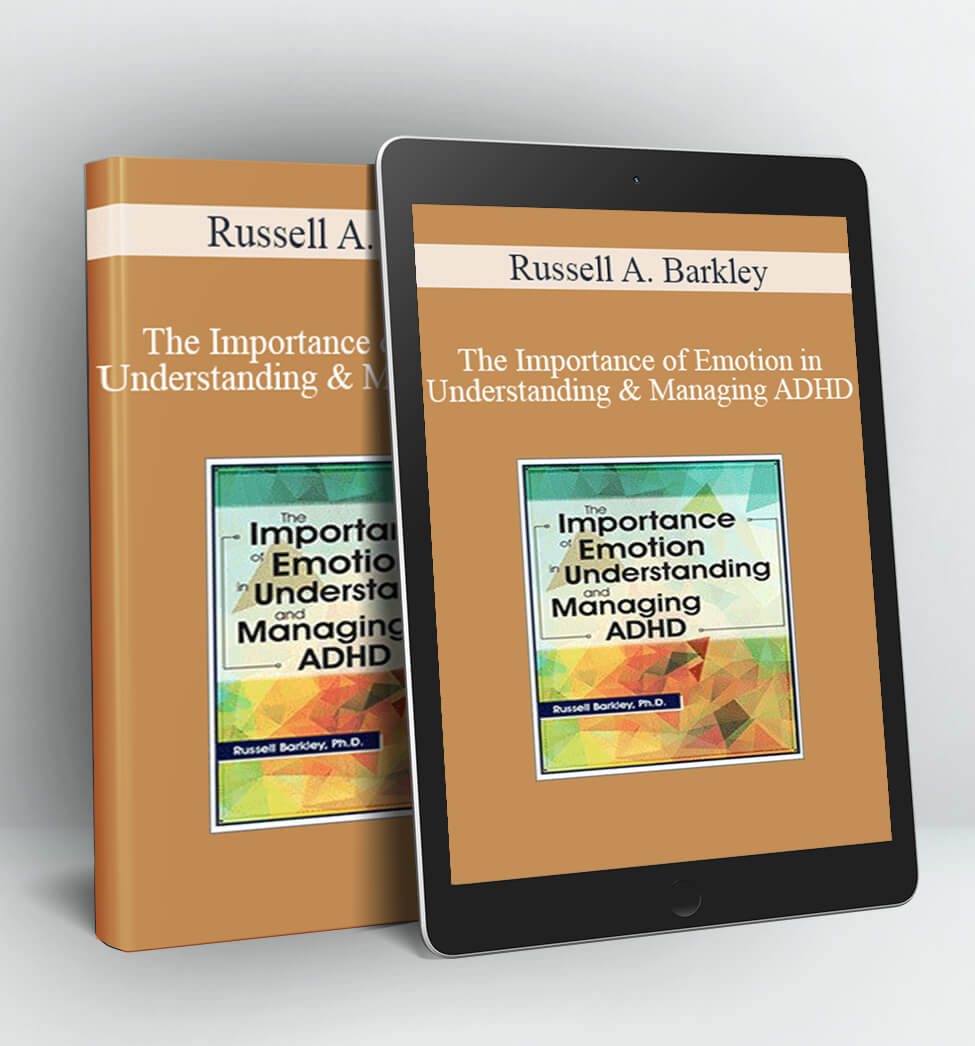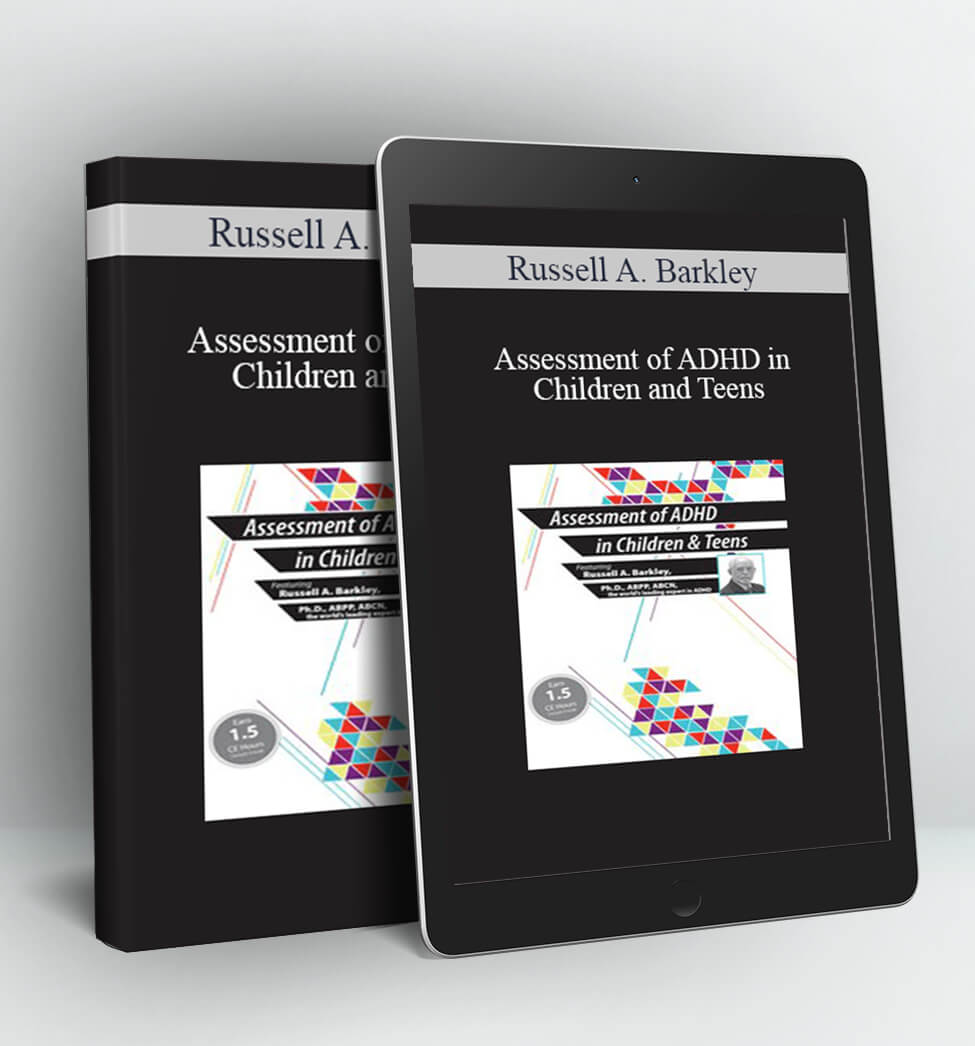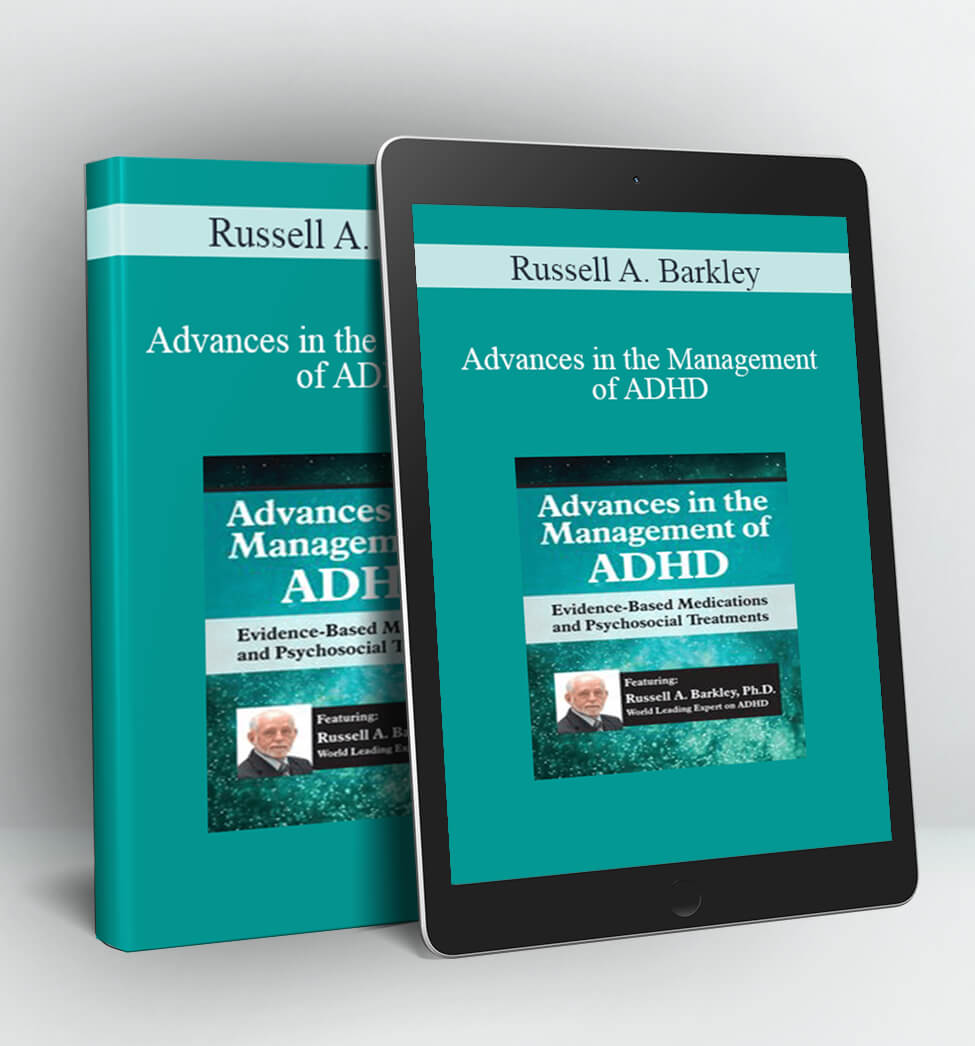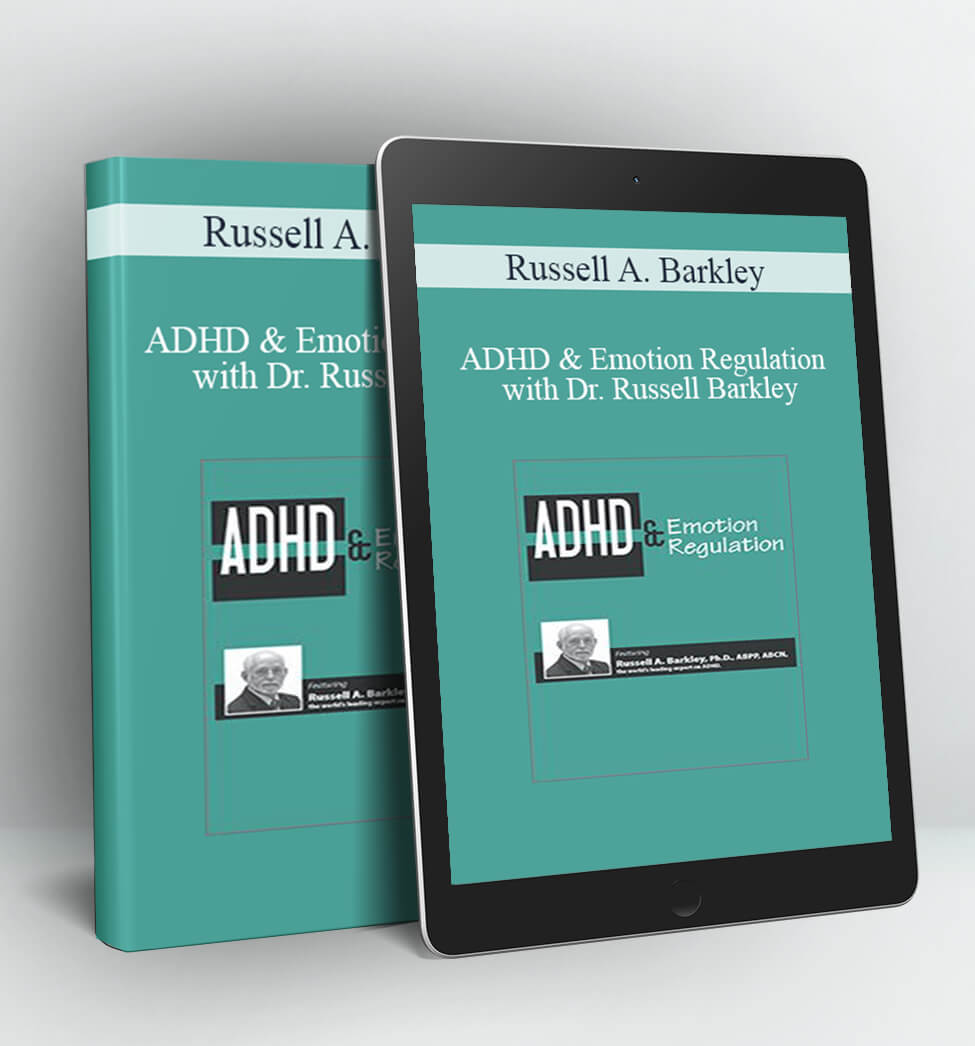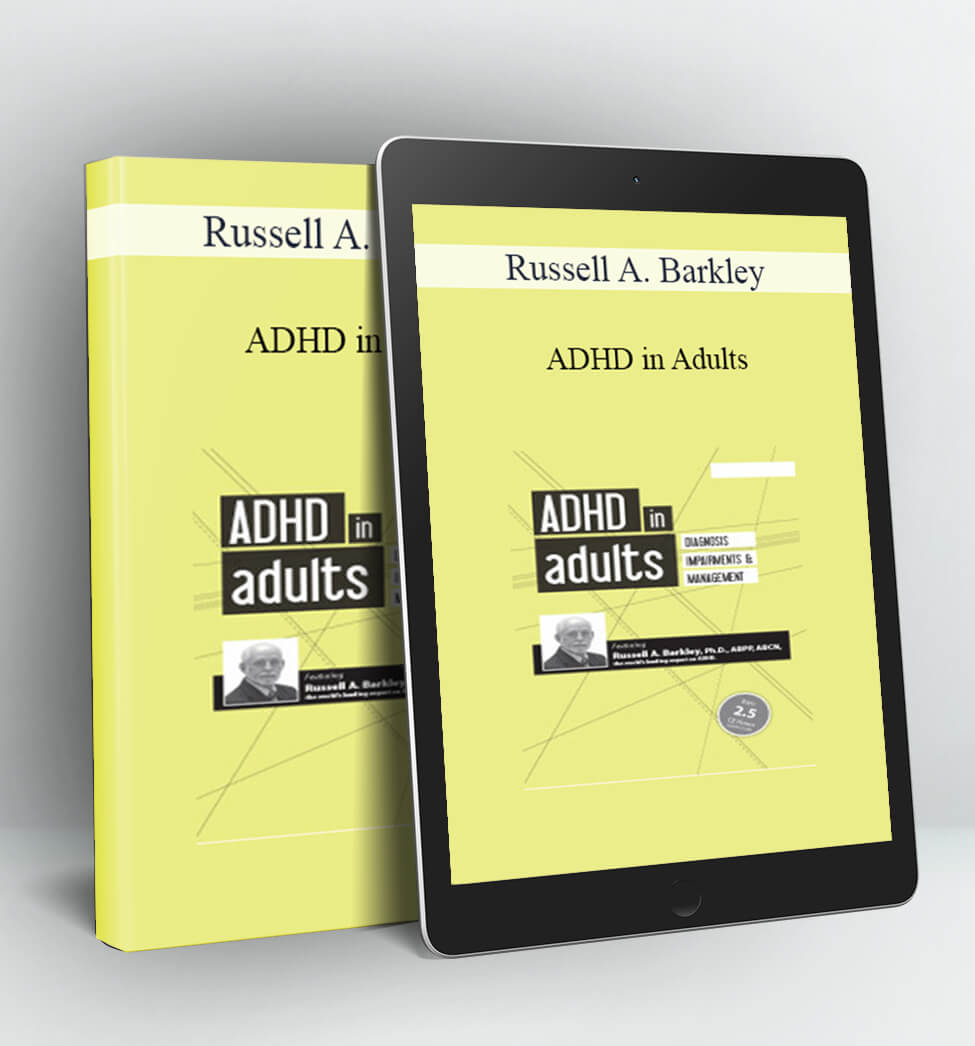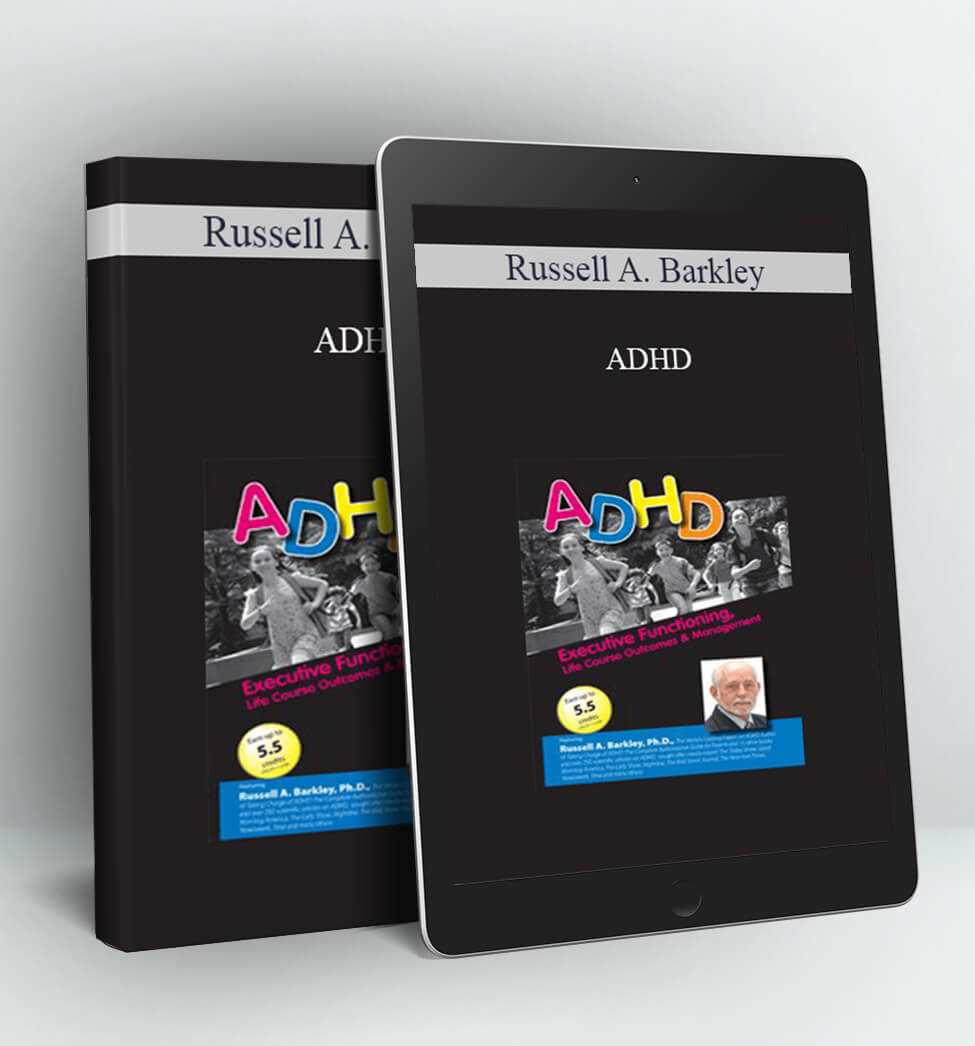The Importance of Emotion in Understanding and Managing ADHD – Russell A. Barkley
- Faculty:
- Russell A. Barkley
- Duration:
- 1 Hour 29 Minutes
- Format:
- Audio and Video
- Copyright:
- Sep 13, 2012
Description
ADHD is currently understood to be a disorder of inattention, impulsivity, and usually hyperactivity that arises in childhood or early adolescence and is highly persistent over time in most cases. However, since the first medical papers have been published on ADHD starting in 1798, emotion has always been included in the conceptualization of the disorder up through the 1970s. Beginning with DSM-II and progressing to the present, emotional dysregulation has been excluded from the clinical conceptualization of the disorder and the diagnostic criteria and relegated to an associated problem or the result of comorbid disorders.
This presentation reviews the evidence from the history, neuropsychology, neuro-anatomy, and observational research that shows that emotional impulsiveness and deficient emotional self-regulation are an integral part of ADHD. Returning emotion to its rightful place as a core feature of the disorder also serves to better explain the development of comorbid disorders, such as oppositional defiant disorder, and well as various life course impairments. Dr. Barkley, internationally recognized authority on ADHD, will discuss how to determine which aspects of emotional adjustment problems in ADHD cases are the result of the disorder and which are likely to be the consequence of comorbidity or other life course circumstances. He will also address the implications of including emotion in ADHD for its management.
Handouts
| Manual – Understanding Emotion in ADHD (906.5 KB) | 18 Pages | Available after Purchase |
Outline
Current View of ADHD
History of Involvement of Emotion in ADHD
- Poor Emotion Regulation is in ADHD back to 1775
- DSM-II Eliminates Emotional Dysregulation from ADHD
Neuro-anatomy of ADHD
- Disturbances to Anterior Cingulate Cortex
Neuropsychology of ADHD
- Involvement of “Hot” Emotional Executive Circuits
Review of Psychological Evidence
- Emotional Impulsiveness
- Poor Self-Regulation of Emotion
Unique Contribution of Emotional Impulsiveness to Impairments
Role of Emotional Impulsiveness
- Risk for Comorbid Oppositional Defiant Disorder
Implications of Emotional Dysregulation for Diagnosis
Implications of Poor Emotional Self-Regulation for Treatment
Faculty

Russell A. Barkley, Ph.D. Related seminars and products: 14
Russell A. Barkley, Ph.D., is a Clinical Professor of Psychiatry at the Virginia Treatment Center for Children and Virginia Commonwealth University Medical Center, Richmond, VA. He is a Diplomate (board certified) in three specialties, Clinical Psychology (ABPP), Clinical Child and Adolescent Psychology, and Clinical Neuropsychology (ABCN, ABPP). Dr. Barkley is a clinical scientist, educator, and practitioner who has published 23 books, rating scales, and clinical manuals numbering 41 editions. He has also published more than 270 scientific articles and book chapters related to the nature, assessment, and treatment of ADHD and related disorders and is the author of the book Managing ADHD in School (PESI, 2016).
He is the founder and editor of the bimonthly clinical newsletter, The ADHD Report, now in its 25th year of publication. Dr. Barkley has presented more than 800 invited addresses internationally and appeared on nationally televised programs such as 60 Minutes, the Today Show, Good Morning America, CBS Sunday Morning, CNN, and many other programs on behalf of those with ADHD. He has received awards from the professional societies and ADHD organizations for his lifetime achievements, career accomplishments, contributions to research in ADHD, to clinical practice, and for the dissemination of science. His websites are russellbarkley.org and ADHDLectures.com.
Speaker Disclosures:
Financial: Dr. Russell Barkley is employed by the Medical University of South Carolina. He is on the speaker’s bureau for Eli Lilly and receives compensation. He has an advisory board relationship with Theravance and receives compensation. He is an author for Guilford Press and receives royalties. He is an author for Jones and Bartlett Publishers and receives royalties. He is a speaker for J&K Seminar and receives royalties. He is a speaker for PsychContinuingEd.com and receives royalties. He is a speaker for ContinuingEdCourse.com and receives royalties. He is a speaker who receives an honorarium for PESI, Inc.
Non-Financial: Dr. Russell Barkley has no relevant non-financial relationship to disclose.
Access Download The Importance of Emotion in Understanding and Managing ADHD – Russell A. Barkley right now!
Delivery Method:
After your purchase, you’ll get access to the downloads page. Here, you can download all the files associated with your order.
Downloads are available once your payment is confirmed, we’ll also send you a download notification email separate from any transaction notification emails you receive from Vinlearn.

